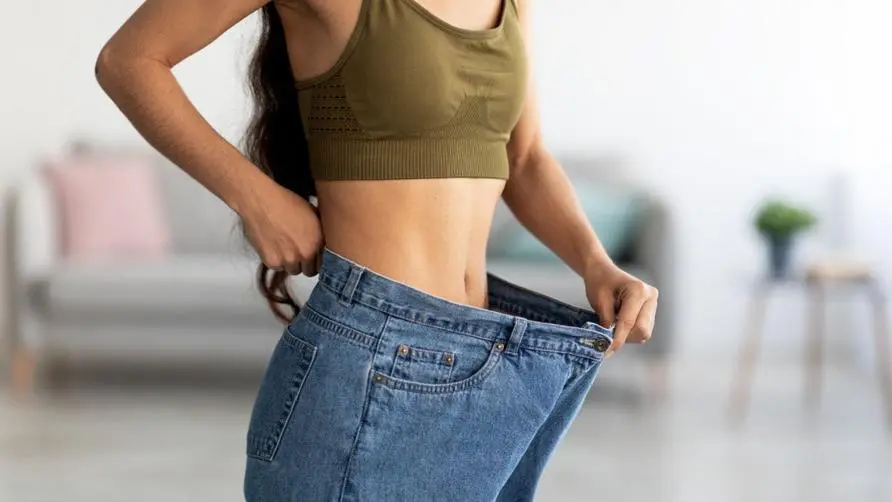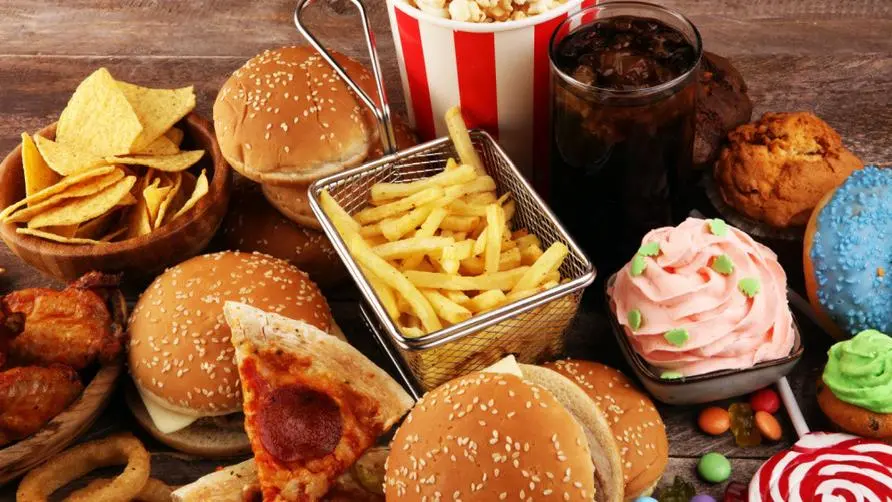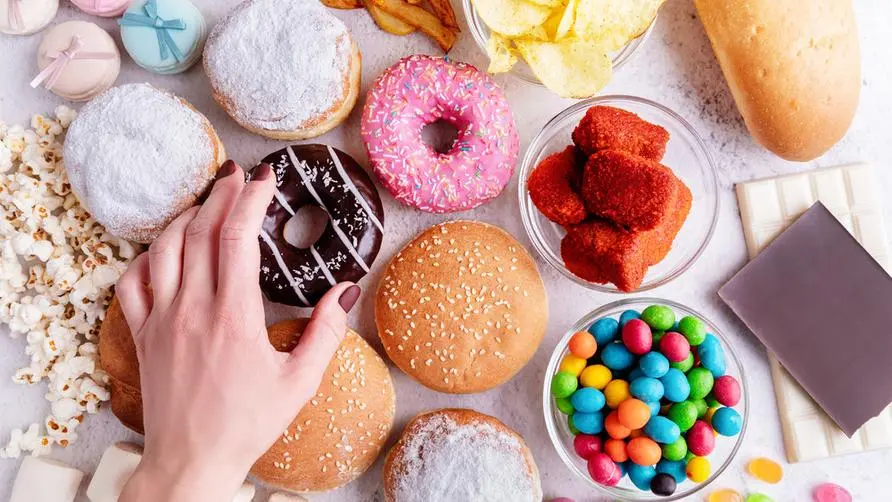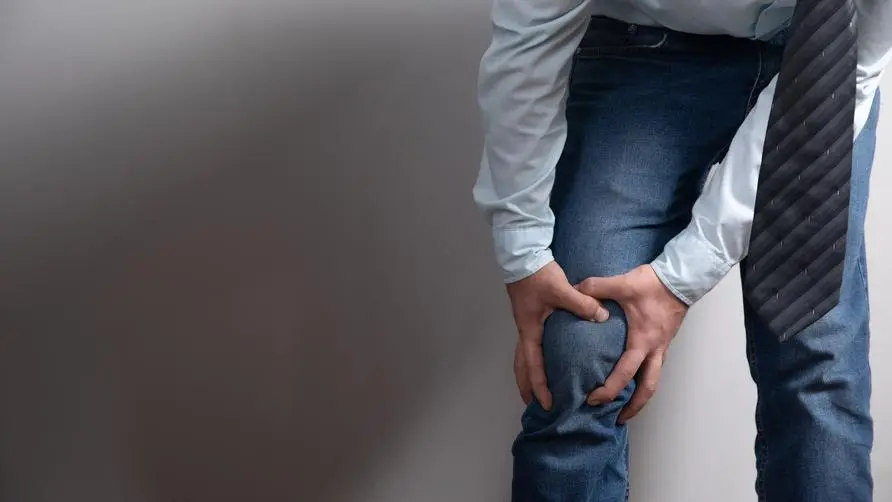Eating one donut is too much! "BMJ" study reveals: excessive sugar intake is related to "40 negative effects"

The consequences of excessive “sugar” intake may not only cause weight gain, but may also have “45 negative effects” on physical health! A study published in the authoritative medical journal “British Medical Journal” (BMJ) pointed out that consuming too much “free sugar” (Free Sugar) is significantly related to 45 negative health consequences. It is recommended to reduce the intake of free sugar or added sugar. Intake is limited to less than 10% of daily calories.
The harm of excess sugar is not limited to obesity and diabetes? Study: Linked to “40 Negative Health Consequences”
“Free sugar” generally refers to monosaccharides (such as glucose or fructose) and disaccharides (such as sucrose, sugar) that are “artificially added” to the diet, as well as honey, syrup, fruit juice, concentrated fruit juice, fruit puree, and dextrin. of natural sugars. A research team from Sichuan University in China conducted a systematic review of 8,601 studies and 73 meta-analyses and found that high intake of free sugars is associated with the following negative health conditions:
14 endocrine/metabolic results: increased BMI in children, increased weight/weight increase within one year, gout, decreased HDL (good cholesterol), increased LDL (bad cholesterol), hyperuricemia, latent adult autoimmune diabetes (LADA), metabolic syndrome, childhood obesity, adult obesity, increased serum uric acid, type 2 diabetes, liver fat accumulation, and muscle fat accumulation.
10 cardiovascular outcomes: coronary heart disease, cardiovascular disease, cardiovascular disease mortality, childhood hypertension, adolescent hypertension, adult hypertension, myocardial infarction, increased systolic blood pressure in children, increased systolic blood pressure in adolescents, Stroke.
Seven types of cancer results: breast cancer, breast cancer mortality, hepatocellular carcinoma, prostate cancer, pancreatic cancer, all-cause cancer risk, and all-cause cancer mortality.
9 other outcomes: all-cause mortality, childhood asthma, attention deficit hyperactivity disorder, decreased bone mineral density, dental caries (cavities), tooth erosion, depression, non-alcoholic fatty liver disease, and increased triglycerides.
The recommended daily sugar intake is no more than 6 teaspoons! Expert: Eating one donut may exceed legal limit
The findings, combined with existing guidance from the World Health Organization, World Cancer Research Fund and the American Institute for Cancer Research, recommend that people should limit their daily intake of free sugars to less than 25 grams, which is about 6 teaspoons of sugar. 2 and a half chocolate chip cookies, 473ml of mixed drink. and about 1.5 tablespoons of honey. In addition, one serving of donuts contains approximately 15-30 grams of sugar, which may exceed the recommended daily intake of sugar.
Study author Associate Professor Liu Liangren (transliteration) said it is recommended to reduce the intake of sugary drinks to less than one serving (about 200-355ml) per week, which is equivalent to a 354ml bottle of carbonated drink. It is also recommended to get enough sleep regularly, “because we tend to choose foods with higher sugar content when we are tired. Gradually reducing your free sugar intake can help train your taste buds to reduce sugar cravings.”
Avoid fresh juices, dairy products, and snacks! Nutritionist: 6 “hidden” sugar traps to avoid
In addition to drinking less hand-shaken drinks and eating less sugary refined desserts to avoid the dangers of free sugar, you should also pay attention to the “hidden version” of sugar trap foods in your life. Nutritionist Yu Zhuqing emphasizes that, especially the following “six major categories” of food, you must consciously eat less when losing weight:
Processed food. Such as sweet and spicy, fish balls, sausages, ham, meat floss, meat paper, etc., in order to have a better taste during the production process, a certain amount of refined sugar will be added.
Certain drinks. For example, “fresh fruit juice” commonly seen on night market vendors may be easily thought of as a natural, unprocessed drink. However, the fructose content of 1 cup of fresh fruit juice may exceed the recommended daily intake of 2 servings of fruit; not to mention exceeding the recommended daily intake of 2 servings of fruit. Canned juices and sports drinks that are readily available in stores may have higher calories after processing.
In addition, longan and red date tea, brown sugar ginger tea, Siwuyin or ginseng drink may appear to be healthy, but in fact they also add too much refined sugar to counteract the bitter taste of Chinese medicinal materials. People should pay special attention to their intake.
Traditional snacks. Refined sugar is also added to meat soup and noodle soup that are popular in Taiwan. If you add soup base thickened with cornstarch and eat more than 2 meals a day, the total calories and total sugar content will easily exceed the standard.
Braised/smoked meats. Among all kinds of snacks, it is obvious that there is added sugar, such as braised pork, braised pig’s feet, smoked meat, braised or honey-flavored meat, etc., so it is even more important to consume them in a controlled manner.
Sauces. For example, soy sauce paste, ketchup, salad dressing or mirin will add refined sugar to add flavor.
Dairy products. For example, fresh milk, yogurt, and yogurt contain natural lactose; if refined sugar is added for seasoning, the calories will be higher, which will affect weight loss.
Finally, nutritionist Yu Zhuqing reminded the public that they should be aware of their daily total sugar intake. Before consuming sweets or large meals, you must clearly understand how much sugar you have consumed. In addition to reading the nutrition labels on the packaging, you may also consult a nutritionist or physician in a timely manner to avoid eating too many “hidden” sugary foods. hinder the weight loss process.
Source:
Extended reading:





